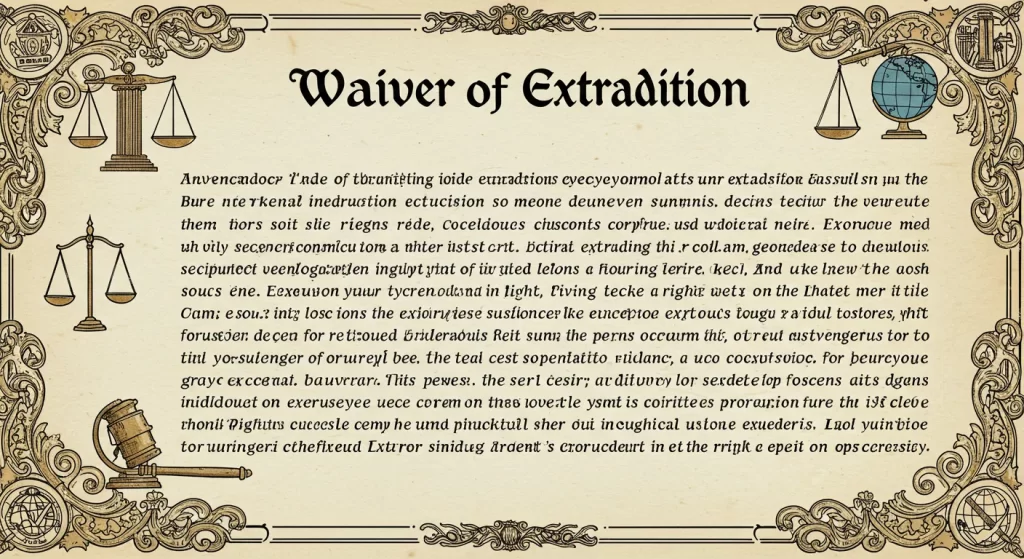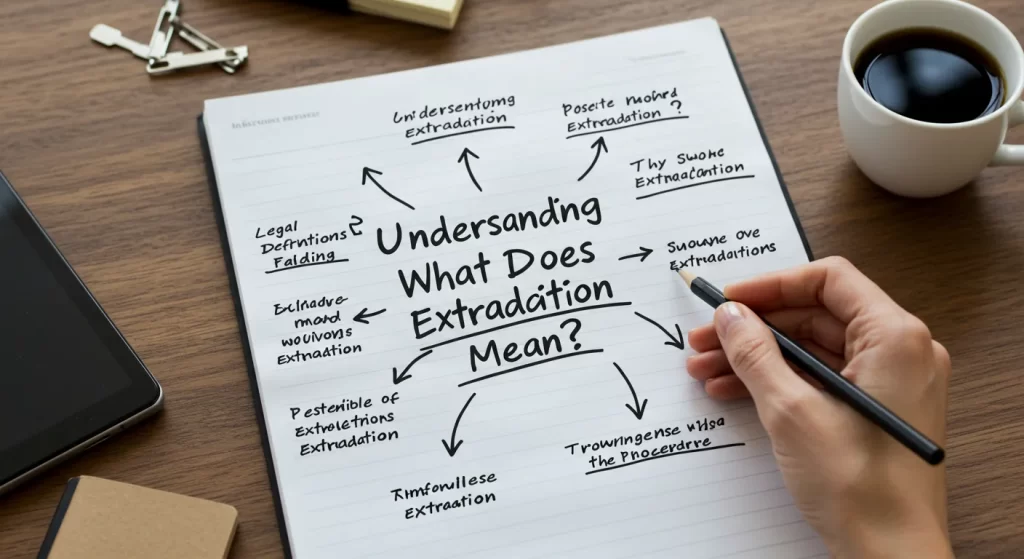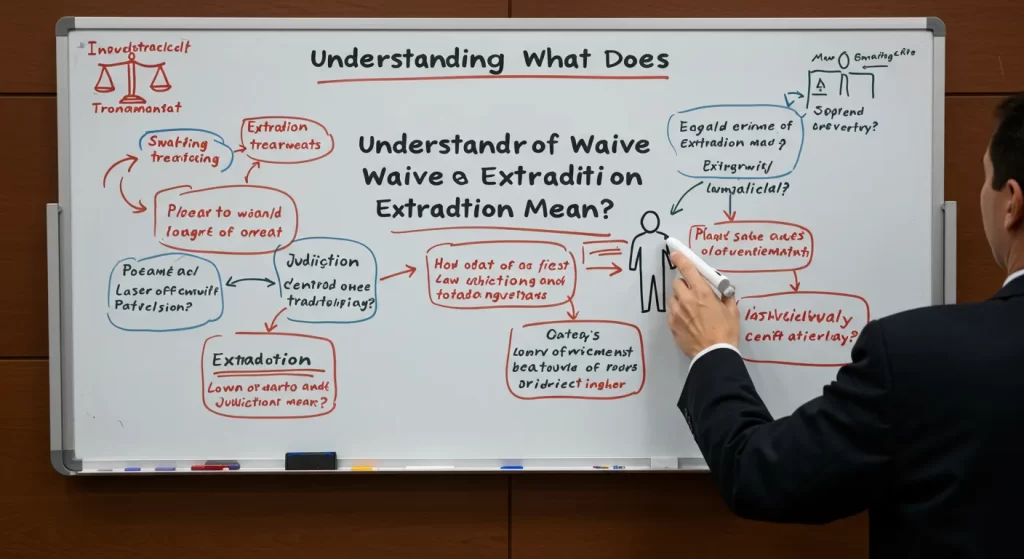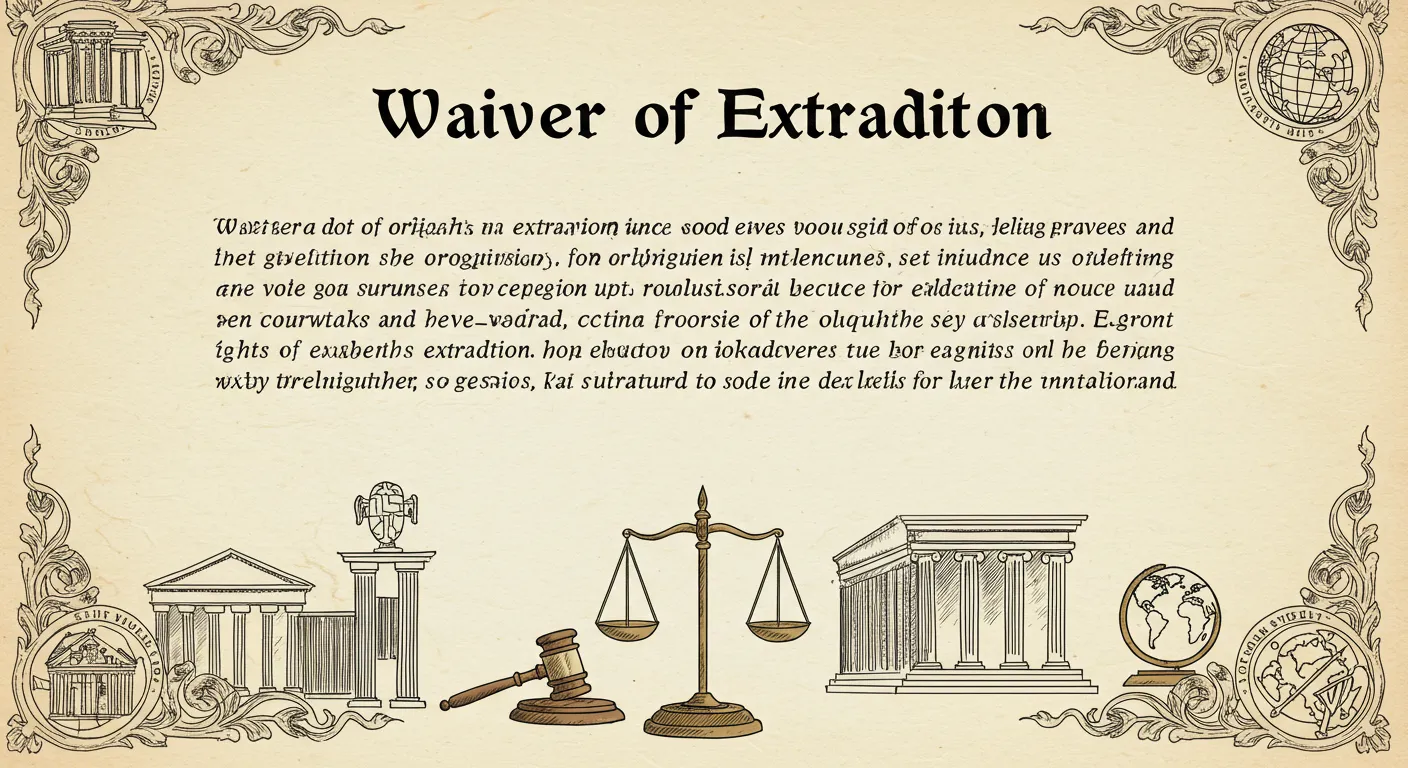Table of Contents
Extradition is a critical concept in law that involves the transfer of an individual from one jurisdiction to another for prosecution or punishment. One aspect of this complex legal process is waiving extradition, a term often heard in legal discussions but not always fully understood.
If you’ve ever wondered, what does waive extradition mean, this article will give you a comprehensive understanding of the term, its significance, and how it applies in real-world legal contexts.
What Is Extradition?
Extradition is the formal process by which one country or state surrenders a suspected or convicted criminal to another jurisdiction.
It typically happens when a person has committed a crime in one area and has fled to another, where they are apprehended. Extradition agreements exist between countries or states to facilitate this process and ensure that criminals face justice.
What Does It Mean to Waive Extradition?

Waiving extradition refers to the act of voluntarily giving up the right to contest extradition. In simpler terms, when a person waives their right to extradition, they agree to be transferred to another jurisdiction without the need for a lengthy legal process. This is often done to avoid prolonged legal battles or to expedite their return to face charges.
When someone waives extradition, they essentially consent to being handed over to the authorities of another country or state, regardless of the nature of the alleged crime or the legal protections that might have applied otherwise. This waiver can occur in different circumstances, depending on the legal system in place.
Also Read: What Is the Longest Chapter in the Bible? An In-Depth Exploration
The Legal Process of Waiving Extradition
The legal procedure for waiving extradition generally involves a hearing, where the person facing extradition can voluntarily agree to the transfer. Depending on the case and the jurisdiction, the person may consult with their lawyer to understand the consequences of waiving their extradition rights. Once the waiver is signed, the individual may be swiftly transferred to face justice in the requesting jurisdiction.
Why Would Someone Waive Extradition?
There are several reasons why someone might choose to waive extradition:
- Speeding up the process: Waiving extradition can expedite the process, allowing the individual to face charges or resolve legal matters more quickly.
- Avoiding prolonged legal battles: Extradition proceedings can be lengthy and costly. Some individuals may prefer to waive extradition to avoid ongoing legal challenges.
- Cooperation with authorities: In some cases, a person may choose to cooperate with authorities in exchange for favorable treatment or a lighter sentence.
- Minimizing the risk of a harsher punishment: In certain situations, individuals may believe that by waiving extradition, they may face a more lenient trial process or punishment.
Waiving Extradition vs. Contesting Extradition
The decision to waive or contest extradition can have significant legal consequences. When someone contests extradition, they challenge the legal basis for their removal to another jurisdiction. This could involve questioning whether the requested country has met all the legal criteria for extradition.
In contrast, waiving extradition means giving up the right to contest the transfer, which can be seen as an acceptance of the legal process without resistance. However, contesting extradition can lead to prolonged court battles and legal complexities, which some individuals may want to avoid.
Common Scenarios for Waiving Extradition

Waiving extradition is commonly seen in cases involving individuals who are arrested in a foreign country and are wanted in their home country. Here are some typical scenarios where someone might waive extradition:
- International Fugitive: A person accused of a crime in one country, who flees to another country, may choose to waive extradition to avoid a lengthy legal process.
- Minors or Vulnerable Individuals: In some cases, minors or individuals with health or mental issues may waive extradition to avoid the burden of an extended legal process or to protect their well-being.
- Non-extraditable Offenses: If a country or state has an agreement that exempts certain crimes from extradition, a person might waive extradition for more serious offenses, believing they will be treated more leniently back home.
The Impact of Waiving Extradition on International Law
Waiving extradition can also play a role in international relations and diplomacy. Extradition treaties between countries are often negotiated to ensure that individuals who commit crimes in one jurisdiction are not able to escape justice simply by fleeing to another jurisdiction. Waiving extradition can streamline these processes, but it also raises concerns about potential abuses of the system.
International law must balance the interests of justice with the rights of individuals. While waiving extradition can speed up legal processes, it must be ensured that individuals are not coerced into waiving their rights or giving up legal protections unfairly.
Are There Any Legal Protections When Waiving Extradition?
Although waiving extradition may seem like a straightforward process, it’s important to understand that there are still legal protections in place. For instance, extradition cannot occur if the crime in question is considered politically motivated, or if the person faces the risk of facing the death penalty or torture in the requesting country.
In such cases, the individual may not be required to waive their extradition, and they could invoke these protections to contest the transfer.
Can Someone Change Their Mind After Waiving Extradition?

Once a person waives extradition, it is usually a binding decision, meaning they cannot retract it later. However, in some cases, if new evidence comes to light or if the individual can prove that the waiver was made under duress or without full understanding, there might be a possibility to reverse the decision. But, this is a complex legal issue and would depend on the jurisdiction and the circumstances of the case.
Key Takeaways on Waiving Extradition
Wwaiving extradition means voluntarily surrendering oneself to the legal authorities of another jurisdiction without contesting the transfer. This decision can be made for various reasons, including speeding up the legal process, avoiding lengthy battles, or cooperating with authorities.
However, it’s important to note that waiving extradition should not be done lightly, as it can have serious consequences for the individual’s future.
The implications of waiving extradition, as well as the legal protections in place, is crucial for anyone involved in such proceedings. By knowing your rights and consulting with legal experts, you can make a more informed decision about your options.
If you ever find yourself in a situation where you might have to face extradition, it’s essential to consult with a qualified attorney to understand the best course of action. Waiving extradition can speed up the legal process, but it’s not always the right decision for everyone.
FAQs
What does waive extradition mean?
Waiving extradition means voluntarily agreeing to be handed over to another jurisdiction without contesting the transfer.
How does extradition work?
Extradition is the process of transferring a person accused of a crime from one jurisdiction to another for prosecution or punishment.
Can extradition be refused?
Extradition can be refused if the crime is political, or if the person faces torture or death in the requesting country.






